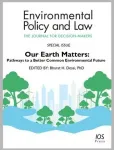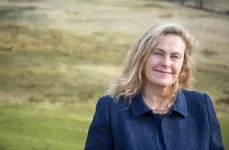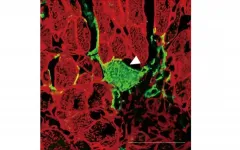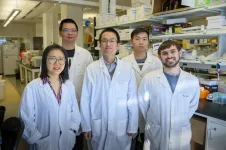(Press-News.org) Amsterdam, June 2, 2021 - On the eve of the 50th anniversary of the 1972 Stockholm conference that created the United Nations Environmental Programme, it is clear that the global environmental situation has only deteriorated. In "Our Earth Matters: Pathways to a Better Common Environmental Future," an extended special issue of Environmental Policy and Law (EPL), leading scholars from more than five continents call for an honest introspection of what has been attained over the last 50 years relating to regulatory processes and laws and explore future trajectories with new ideas and frameworks for environmental governance in the 21st century.
"Our objective is to fire the imaginations of scholars and decision-makers to re-examine current approaches and to explore the future, with new tools, ideas, ecological frameworks, and new international environmental institutions," explains Guest Editor Bharat H. Desai, PhD, LLM, Professor of International Law and Jawaharlal Nehru Chair in International Environmental Law, Centre for International Legal Studies, School of International Studies, Jawaharlal Nehru University, New Delhi, India.
Contributors to the first section of the special issue review some of the structural problems of environmental law in the Anthropocene era, an era of significant human impact on the environment, and predict what frameworks and solutions will be necessary in the future. "Nations are not acting as if they are governing in the Anthropocene epoch, not yet," warns Nicholas A. Robinson, JD, Pace University School of Law, New York; Executive Governor, International Council of Environmental Law. "More than just air pollution and the loss of natural resources, future policies must cope with threats from cyber wars, nuclear war, genetic mutations, and artificial intelligence. International law will have to be more ambitious, taking advantage of cutting-edge science."
The next section explores international law-making processes, outlining current shortcomings and proposing possible frameworks for the future. Observing that current approaches seek to minimize economic impact at the expense of environmental protection, Jorge E. Viñuales, PhD, LLM, University of Cambridge, notes that, "The scale and urgency of the unfolding environmental crisis has made the critique of this hierarchy (economy over environmental protection) more powerful."
Since the 1960s, the United Nations General Assembly has been the central enterprise for the protection of the global environment. The special issue suggests that it is high time the UN system recalibrates itself for the vagaries of scientific assessments and the political realities of the future. A new environmental charter is proposed to rejuvenate the founding values of the international system and restore faith in international environmental governance.
The third section, focusing on problematic situations, highlights how State sovereignty is a major stumbling block for effective environmental conservation and sustainable development. The modern international law movement makes States responsible for adapting regulations and securing compliance. Existing multilateral treaties may serve as an organizational principle for planetary management of natural resources. Writing about the direct and indirect impacts of armed conflicts on the natural environment, Peter Maurer, PhD, President of the International Committee of the Red Cross (ICRC) Geneva, writes that States can integrate legal protections for the environment into their armed forces' doctrines, and humanitarians must commit resources and expertise to help those coping with the environmental consequences of conflict.
"We all have our part to play as we face this existential threat," Dr. Maurer states. "Perhaps the biggest challenge ahead is the shift in in mindset and mechanics needed from States, humanitarian organizations, and those engaged in hostilities."
Other contributions address sector-specific environmental problems including climate skepticism; transnational environmental crimes; soil protection and global food security; the impending global water crisis; ocean biodiversity, and a call for new approaches.
In a concluding section, contributors look to the future at international environmental governance structures and reforms that will be necessary to meet current and future challenges. It has become clear that the changes in attitudes and social structures called for at the 1972 United Nations Conference on the Human Environment have not taken place and that now time is even more limited to make necessary, far-reaching changes.
Contributor Anna Sundström, MA, Secretary General, Olof Palme International Centre, Stockholm, comments, "Together, we face humanity's greatest challenge. Together we must fix it. The need for international action remains even more acute."
International governance is proposed to deal with the practical challenges of repairing environmental conflict. Contributions suggest reviving the United Nations Trusteeship Council, dormant since 1994, with a mandate for the environment and the global commons and turning the United Nations Environment Programme into a specialized agency to elevate its status and equip it with the necessary competence and financial stability. International and national courts and tribunals could become the new "environmental sentinels," and a specialized International Environmental Court could serve as a global watchdog.
"The 50th Anniversary of the 1972 Stockholm Conference next year calls for honest introspection on what we have attained during the past 50 years," says Dr. Desai. "This special issue is a modest effort to challenge the connoisseurs of international law and diplomacy to look ahead at this time of perplexity in the 21st century."
On World Environment Day, June 5, 2021, an exclusive free online event featuring a panel of high-profile experts will explore the issues raised in "Our Earth Matters," discussing pertinent questions about how we might move ahead to forge pathways to a better environmental future.
INFORMATION:
Smoking in early puberty in boys may have negative consequences for their future generations of offspring, a study from the University of Bergen (UiB) shows.
By continued analysis of data gathered in the large international RHINESSA, RHINE and ECRHS studies, researchers have found that the health of future generations depends on actions and decisions made by young people today. This is particularly relevant for boys in early puberty and mothers/grandmothers both pre-pregnancy and during pregnancy, the study shows.
The paper "Prenatal and prepubertal exposures to tobacco smoke in ...
Humans can observe what and where something happens around them with their hearing, as long as sound frequencies lie between 20 Hz and 20 000 Hz. Researchers at Aalto University have now developed a new audio technique that enables people to also hear ultrasonic sources that generate sound at frequencies above 20,000 Hz with simultaneous perception of their direction. The results have been published in Scientific Reports on 2 June 2021.
'In our study, we used bats in their natural habitat as sources of ultrasonic sound. With our new technique, we can now hear the directions-of-arrival of bat sounds, which means we can track bats in flight and hear where they are - we're ...
An international team of astrophysicists led by the Stellar Astrophysics Group of the University of Alicante (UA), the Instituto de Astrofísica de Canarias (IAC), and the University of Valparaíso (Chile) has discovered a massive cluster of stars of intermediate age in the direction of the Scutum constellation. This object, which has been named Valparaíso 1, lies some seven thousand light years away from the Sun, and contains at least fifteen thousand stars. To detect it, observations have been combined from ESA's Gaia satellite, and various ground-based telescopes, ...
Tsukuba, Japan - It is estimated that during a heart attack, one billion cells in the heart are lost. In the wake of the heart attack, the lost tissue is replaced by scar tissue, which can lead to heart failure, arrhythmia and death. In a new study, researchers from the University of Tsukuba have shown how cells in the scar tissue can be converted to heart muscle cells, effectively regenerating the injured heart.
The injured heart of humans and rodents alike does not have the capacity to regenerate after injury. Therefore, the only way for the heart to heal the wound is to build a scar tissue in the injured area. A longstanding goal in the field has been to find a way to reprogram fibroblasts, ...
Bone-regenerating treatments are in high demand due to the ageing population. Increasingly, the orthopaedic biomaterials used to support these treatments are designed to be "immunomodulatory", i.e., guide the body's inflammatory response. They do this by encouraging macrophages - a type of white blood cell that surrounds and kills microorganisms - to adopt new roles based on signals and stimuli in their microenvironment. This approach has proved effective for developing new bone and for encouraging existing bone to accept artificial implants.
Magnesium is a mineral that not only helps to maintain normal nerve and ...
BEND, Ore. - Bat researchers say a project in Central Oregon shows citizen science's strong potential for helping ecologists learn more about one of the least understood groups of mammals.
Volunteers listened for the rare spotted bat, Euderma maculatum, within study grids in a 24,000-square-kilometer area in and around the Deschutes and Ochoco national forests. They completed a total of 61 surveys and heard the bat 25 times.
Bat encounters help fill in holes in basic information regarding species abundance and distribution - gaps that impede conservation - and the ...
FAYETTEVILLE, Ark. - Fine-grained location data gleaned from mobile phones shows that people living in less affluent neighborhoods spent less time at home during the early lockdown and first several months of the coronavirus pandemic.
Researchers tracked data from millions of mobile phone users in the largest U.S. metropolitan areas. Their findings contribute to a growing body of research suggesting that low-wage earners -- a vulnerable group already at greater risk for contracting COVID-19 -- could not afford to comply with stay-at-home orders or worked in ...
Global oceans absorb about 25% of the carbon dioxide released into the atmosphere when fossil fuels are burned. Electricity-eating bacteria known as photoferrotrophs could provide a boost to this essential process, according to new research from Washington University in St. Louis.
Scientists led by Arpita Bose, assistant professor of biology in Arts & Sciences, found that bacteria found in brackish sediments can "eat" electricity and, in the process, absorb and lock away climate-warming carbon dioxide. This unusual skill was previously thought to be almost exclusive to freshwater bacteria, but may be common ...
WASHINGTON--A new study finds people who consume two servings of fruit per day have 36 percent lower odds of developing type 2 diabetes than those who consume less than half a serving. The research was published in the Endocrine Society's Journal of Clinical Endocrinology & Metabolism.
Diabetes is a disease where people have too much sugar in their bloodstream, and it is a huge public health burden. Approximately 463 million adults worldwide were living with diabetes in 2019, and by 2045 this number is expected to rise to 700 million. An estimated 374 million people are at increased risk of developing type 2 diabetes, the most common form of the disease. A healthy diet and lifestyle can play a major role in lowering a person's diabetes risk.
"We ...
A new study led by researchers at Washington State University has identified a protein that could be the key to improving treatment outcomes after a heart attack.
Published in the Journal of Biological Chemistry, the research suggests that protein kinase A (PKA) plays a role in heart muscle cell necrosis, a major type of cell death that commonly occurs after reperfusion therapy, the treatment used to unblock arteries and restore blood flow after a heart attack.
"Our study has found that turning off a gene that controls this protein activity increased necrotic cell death and led to more heart injury and worse heart function following heart attack in a rodent model," said study author Zhaokang Cheng, an assistant professor in the WSU College ...







